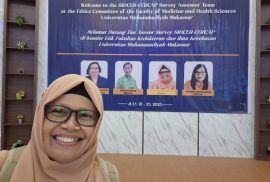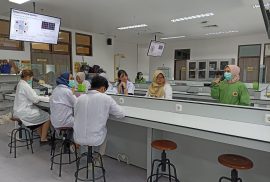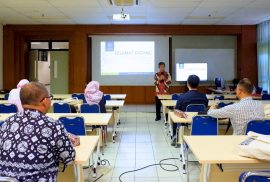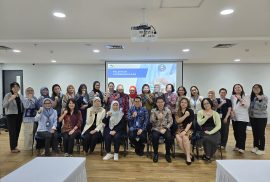Departemen Farmakologi dan Terapi Fakultas Kedokteran, Kesehatan Masyarakat, dan Keperawatan (FK-KMK) UGM menggelar acara pelepasan dan penghargaan purna tugas untuk salah satu tenaga kependidikan yang telah lama mengabdi, Ibu Rena Widani. Acara berlangsung hangat dan penuh rasa kekeluargaan, dihadiri oleh para sivitas akademika departemen.
Ketua Departemen, Prof. Dr. dr. Eti Nurwening Sholikah, M.Kes., M.Med.Ed., Sp.KKLP., menyampaikan apresiasi setinggi-tingginya atas dedikasi, kerja keras, dan kontribusi Ibu Rena selama bertahun-tahun dalam mendukung kelancaran tugas akademik maupun laboratorium. “Pengabdian Ibu Rena telah menjadi bagian penting dalam perjalanan dan capaian Departemen Farmakologi dan Terapi. Jejak kerja beliau akan selalu menjadi teladan,” ujar Prof. Eti dalam sambutannya.










